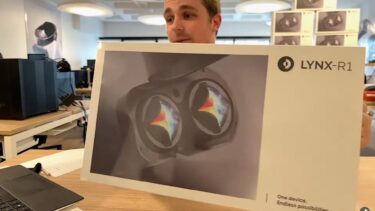Meta Quest 3 is supposed to make mixed reality great and vice versa. But John Carmack isn’t sold on the mass market potential of the technology.
Carmack is highly respected in the industry, and rightly so. From the beginning, he saw the future of virtual reality in standalone devices and worked toward that vision, undaunted by other opinions. In the end, he was right: Meta Quest laid the groundwork for VR’s mainstream success, while PC and console VR are still trying to find their footing.
This is not to say that VR has reached Carmack’s ideals. His formula for VR’s success – that VR headsets need to be lightweight, comfortable, inexpensive and like smartphones, instantly usable, isn’t fully realized yet. And mixed reality, which is one of Meta Quest 3’s main selling points, isn’t part of the picture for Carmack.
Carmack doesn’t see mass market potential
On Twitter, Carmack writes:
In other tweets, Carmack stresses that his doubts are not directed at passthrough, whose value he acknowledges, but at the pitch about “apps interacting with your environment”.
The burden of proof is on the developers
Whether Carmack is right or not won’t be clear right away. It will take years. The technology and the apps are still in their infancy, and at this point the suspicion that they are gimmicks is justified.
But the inherent nature of new technologies is that you can’t predict what possibilities they will open up. This is especially true of mixed reality, which could have far-reaching implications. In fact, it could change our relationship to the world more than virtual reality, precisely because it changes and augments existing reality rather than simply replacing it.
I’d also like to remind you that Carmack wasn’t always right: in 2015, for example, he was far less convinced that VR controllers were essential to the success of virtual reality than he is today.
Mixed reality and augmented reality haven’t had a chance at mainstream adoption yet. The devices available so far have been too expensive, too limited, and too cumbersome to use. The first mass-market mixed reality headset could change that. The burden of proof is on the developer community, and they will ultimately decide the fate of the technology.
I’m optimistic about mixed reality and have presented my reasons for why I’m excited about the technology in a series of articles, though I don’t draw as sharp a distinction between passthrough and mixed reality as Carmack does. To me, these things go together.
Source: Mixed News




